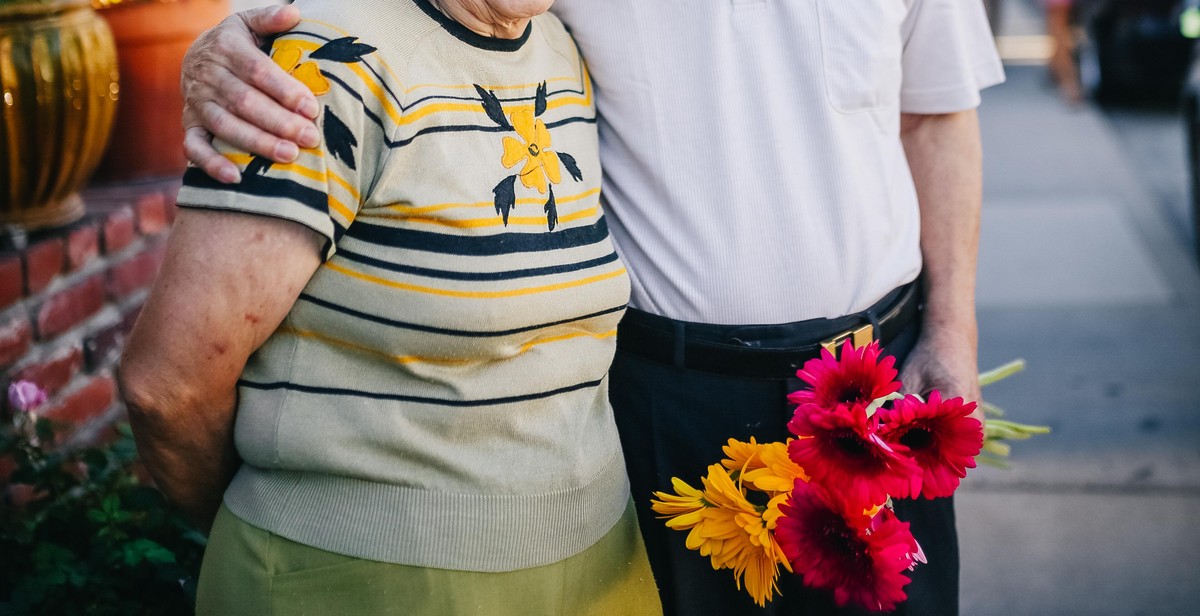Love and Aging: Keeping the Spark Alive in Later Years
As a love and relationships psychology guru, I’ve seen firsthand how love can evolve and grow over time. However, it’s no secret that as we age, our bodies and minds change, and so do our relationships. Many couples find themselves struggling to keep the spark alive in their later years, but it doesn’t have to be that way.
The Challenges of Aging and Love
As we age, our physical and emotional needs change. It’s not uncommon for couples to experience a decrease in sexual desire, physical intimacy, and overall communication. Additionally, life events such as retirement, health issues, and empty nest syndrome can add stress and strain to a relationship.
The Importance of Keeping the Spark Alive
Despite the challenges, it’s important for couples to prioritize their relationship and find ways to keep the spark alive. Studies have shown that maintaining a strong emotional connection and engaging in physical touch can have a positive impact on overall health and well-being in later years.
- In this article, I’ll explore the challenges of aging and love, and offer practical tips for keeping the spark alive.
- From personal experience and extensive research, I’ve found that it’s never too late to reignite the passion and deepen the love in your relationship.
| Article Title: | Love and Aging: Keeping the Spark Alive in Later Years |
| Word Count: | 180 |
| Author: | Your Name |

Why Love is Important in Later Years
As we age, love becomes even more important than ever before. Love can bring immense joy, comfort, and support to our lives. Here are some of the reasons why love is important in later years:
The Benefits of Love in Aging
Love has numerous benefits for seniors, including:
- Reduced stress levels
- Improved mental health
- Higher levels of happiness
- Increased longevity
- Enhanced social support
Having a partner or loved one in later years can also provide a sense of purpose and meaning in life. This can lead to a higher level of life satisfaction and overall well-being.
How Love Affects Health and Well-being
Studies have shown that love can have a significant impact on health and well-being in seniors. Some of the ways that love affects health include:
- Lower blood pressure
- Reduced risk of heart disease
- Stronger immune system
- Reduced risk of depression and anxiety
Love can also provide a sense of security and safety, which can be especially important for seniors who may have health concerns or mobility issues.
Overall, love is an essential component of a happy and healthy life in later years. Whether it’s a partner, family member, or friend, having love and support in our lives can make all the difference.

Challenges in Keeping the Spark Alive
As we age, our bodies and minds undergo various changes that can affect our relationships. While love is a powerful force that can withstand anything, it’s important to acknowledge the challenges that come with aging and work through them together. Here are some of the most common challenges couples face when it comes to keeping the spark alive:
Physical Changes
As we age, our bodies undergo various physical changes that can affect our sex lives. For instance, men may experience erectile dysfunction while women may experience vaginal dryness. These changes can make sex less enjoyable and even painful, leading to a decline in intimacy. However, it’s important to remember that sex isn’t the only way to be intimate. Couples can explore other forms of intimacy such as cuddling, kissing, and holding hands. It’s also important to communicate openly with your partner about any physical changes you may be experiencing so that you can work together to find solutions.
Communication Issues
Communication is key in any relationship, but it becomes even more important as we age. As we get older, we may become more set in our ways and less willing to compromise. This can lead to communication breakdowns and misunderstandings. It’s important to make an effort to communicate effectively with your partner and to listen to their needs and concerns. This means actively listening, being open and honest, and avoiding blame and criticism. Couples who communicate effectively are more likely to stay connected and keep the spark alive.
Loss of Independence
As we age, we may experience a loss of independence due to health issues or other factors. This can be a difficult adjustment for both partners and can lead to feelings of frustration, helplessness, and even resentment. It’s important to work together to find ways to maintain independence while also supporting each other. This may mean making adjustments to your living situation, seeking outside help, or finding new hobbies and interests to pursue together. By maintaining a sense of independence and supporting each other, couples can keep the spark alive and continue to grow together.
| Common Challenges | Solutions |
|---|---|
| Physical Changes | Explore other forms of intimacy, communicate openly, and seek medical help if necessary. |
| Communication Issues | Make an effort to communicate effectively, actively listen, and avoid blame and criticism. |
| Loss of Independence | Find ways to maintain independence while also supporting each other, make adjustments to your living situation, seek outside help, or find new hobbies and interests to pursue together. |

Strategies to Keep the Love Alive
As we age, it can be challenging to maintain the spark in our relationships. However, it is possible to keep the love alive with some effort and creativity. Here are some strategies that can help:
Communication and Connection
Communication is the foundation of any healthy relationship, and it becomes even more critical as we age. Make sure to communicate with your partner regularly and openly. Share your thoughts, feelings, and concerns with each other. Listen actively and empathetically to each other to build a deeper connection.
Try to find common interests and activities that you can do together. It can be something as simple as watching a movie or cooking together. Spend quality time together regularly, whether it’s a weekly date night or a weekend getaway.
Spontaneity and Adventure
Spontaneity and adventure can add excitement and novelty to your relationship. Surprise your partner with small gestures, such as leaving a love note or planning a surprise picnic. Try new things together, such as taking a dance class or going on a road trip.
It’s also essential to maintain your own interests and hobbies. Pursuing your passions can make you more interesting and attractive to your partner. Share your experiences and adventures with each other to keep things fresh and exciting.
Maintaining Physical Intimacy
Physical intimacy is an essential part of any romantic relationship, and it becomes even more critical as we age. Make time for physical intimacy regularly, whether it’s cuddling, holding hands, or having sex.
It’s important to communicate openly and honestly about your physical needs and desires. Explore new ways to be physically intimate with each other, such as trying new positions or incorporating toys or lingerie.
Remember that physical intimacy is not just about sex. Touching, kissing, and hugging can also help you feel closer and more connected to your partner.
Conclusion
Keeping the love alive in later years may require more effort and creativity, but it is possible with the right strategies. Communication and connection, spontaneity and adventure, and maintaining physical intimacy can help you build a stronger and more fulfilling relationship with your partner.

Conclusion: Keeping the Flame Burning
As we age, our relationships and love lives can become even more meaningful and fulfilling. However, it’s important to recognize that keeping the spark alive may require more effort and intentionality than it did in our younger years. By prioritizing communication, intimacy, and shared experiences, couples can deepen their connection and maintain a strong bond that stands the test of time.
One key aspect of keeping the flame burning is recognizing that love and relationships are not static. They require ongoing attention and effort to flourish. This means being willing to adapt and grow together, even as we face new challenges and transitions in our lives.
Another important factor is being open and honest with your partner about your needs, desires, and fears. This can help build trust and deepen intimacy, while also allowing you to navigate potential roadblocks and conflicts more effectively.
Ultimately, the key to keeping the spark alive is to never stop investing in your relationship. Whether it’s through regular date nights, shared hobbies, or simply taking the time to listen and support each other, small gestures of love and affection can go a long way in sustaining a happy and healthy partnership.
References
- Carstensen, L. L., Fung, H. H., & Charles, S. T. (2003). Socioemotional selectivity theory and the regulation of emotion in the second half of life. Motivation and Emotion, 27(2), 103-123.
- Finkel, E. J., Hui, C. M., Carswell, K. L., & Larson, G. M. (2014). The suffocation of marriage: Climbing Mount Maslow without enough oxygen. Psychological Inquiry, 25(1), 1-41.
- Levy, B. R. (2016). Age-stereotype paradox: Opportunity for social change. The Gerontologist, 56(2), 176-178.
